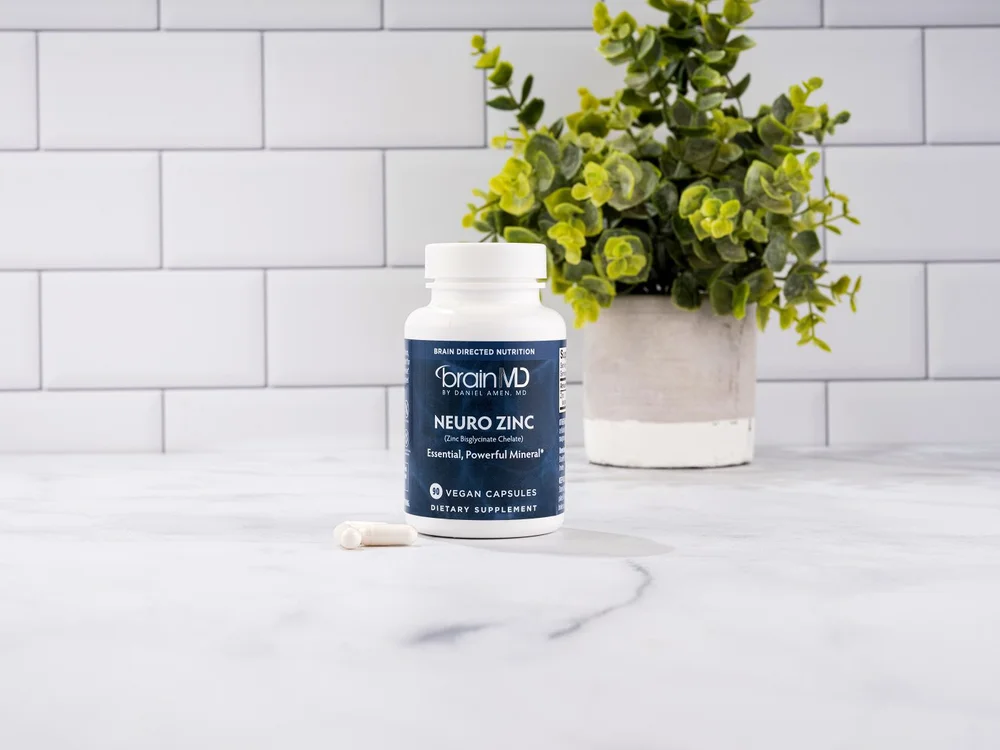Do You Know How Much Melatonin Is Too Much?
Built into your sleep/wake cycle is a signal that goes from the retinas of your eyes to the brain, instructing it to increase the hormone melatonin when it gets dark, which causes you to feel sleepy and prepares your body for sleep.
Conversely, when it starts to get light in the morning, your retinas signal the brain to decrease melatonin, which prepares your body for wakefulness.
This sleep/wake cycle (also called circadian rhythm) can get disrupted at times and disturb your ability to fall asleep, stay asleep, and have quality sleep.
Enter melatonin supplementation.
A quality melatonin supplement, taken at the right dosage and time, can help deliver the message to your brain that it’s time to sleep, which may help your body fall asleep faster, stay asleep longer, and sleep more restfully. No wonder a recent Sleep Foundation survey found that nearly 28% of U.S. adults take supplemental melatonin as a sleep aid.
Here’s what you need to know about melatonin supplementation and how to find the right dosage.
What Disrupts Melatonin Levels?

One of the most common is traveling across two or more time zones. You may feel awake when it’s time to sleep, or sleepy when it’s time to wake. Or, if you’re a night shift worker, when it’s time to go to bed in the morning, sunlight can signal the body to reduce melatonin, making it difficult to sleep.
In our modern world, we’re exposed to light after the sun goes down from our digital devices, televisions, and bright lighting in our homes that can delay the release melatonin, making it difficult to fall asleep or even causing sleeplessness.
Our bodies also make less melatonin as we grow older, and this is one reason elderly folks don’t sleep as much. Providing your body with supplemental melatonin for sleep support makes sense.
One research study found melatonin helped improve sleep induction and quality in the participants with sleeplessness. A meta-analysis, which included studies involving both children and adults, demonstrated that melatonin supplementation decreases the time it takes to fall asleep, increases total sleep duration, and improves overall sleep quality.
What’s the Proper Dose of Melatonin?
Since melatonin is considered a dietary supplement, there are no official FDA-recommended dosing guidelines.
That said, research studies using melatonin show that effective doses range from 0.5 to 10 milligrams (mg) per day. While the Sleep Foundation states that proper dosage depends on the individual’s age, weight, and sensitivity to the hormone, it does provide the following general guidance:
Dosing for Adults
A common safe dose for adults to start with is between 1 and 5 mg of melatonin taken a few hours before bed for sleep/wake cycle regulation, and a half hour before bed for sleep quality support.
Experts recommend starting with a very low dose (as little as .5 mg) to see how it works, and then increasing the dosage as needed. Surveys have found that 3 mg of melatonin is the most often used dose by people who want sleep support.
Dosing for Older Adults/Seniors
Older adults are more sensitive to melatonin supplementation because they typically have less of it. Seniors are recommended to start with the lowest dose of melatonin possible (.5 to 1 mg).
Dosing for Children
Talk to your child’s pediatrician before giving them melatonin. A common dose for children is 1 to 2 mg.
How Much Melatonin Is Too Much?
More than 5 mg of melatonin for children and more than 10 mg for adults are generally considered too much. Too much melatonin can cause sleepiness even after a solid night’s rest, headache, nausea, and agitation. But it’s very hard to overdose on melatonin in a way that’s dangerously toxic.
In general, melatonin is considered safe and has proven to be well-tolerated by most people, but for some, taking any dosage of melatonin isn’t a good idea.
If you take blood thinners or certain other medications, are pregnant or breastfeeding, or if you suffer from brain health disorders such as memory loss, chronic low mood, or seizures – any melatonin without the guidance of a medical doctor isn’t recommended.
How to Start Supplementing With Melatonin
If you’re struggling with sleeplessness or have a dysregulated sleep/wake cycle, BrainMD’s sleep formula Put Me To Sleep Naturally may provide the support you need.
It contains 1.25 mg of melatonin – not too much, but enough to provide needed sleep support. It’s doctor-formulated with additional, natural ingredients that work synergistically to support sleep.
In addition to melatonin, the formula’s 5-HTP and vitamin B6 help support the body in making its own melatonin.
If racing thoughts are keeping you awake, the formula’s ingredient GABA, an inhibitory neurotransmitter, can help calm a noisy mind. Also, l-theanine, derived from green tea, can help increase calming alpha brain waves, and magnesium, known as a calming mineral, can assist with quality sleep.
Put Me To Sleep Naturally is delivered as a chewable tablet, which allows the nutrients in the formula to reach your bloodstream and take effect quickly.
Don’t Miss the Benefits of Sleep
It’s critical to your brain and body health to ensure you get adequate sleep. Taking a natural, non-habit forming, quality melatonin supplement at the right dose may help!
At BrainMD, we’re dedicated to providing the highest purity nutrients to improve your physical health and overall well-being. For more information about our full list of brain healthy supplements, please visit us at BrainMD.
- Here Are Some of the Best Tension Release Exercises to Help You Feel Your Best! - April 17, 2024
- Foodscaping: How to Grow Healthy Foods In Your Own Garden! - April 12, 2024
- Eat Your Fruits and Veggies (Don’t Drink Them) - March 29, 2024



